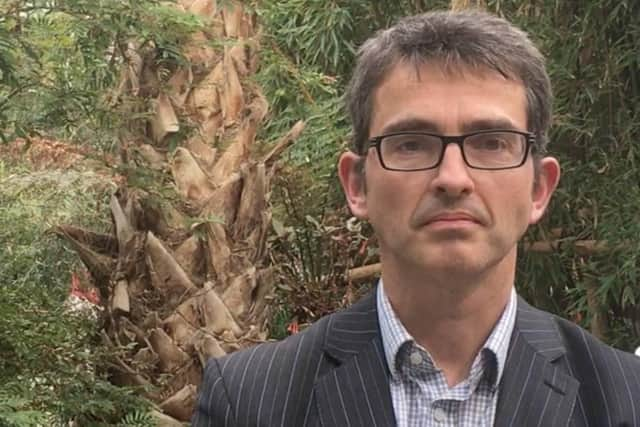“Very high proportion” of Sheffield hospital beds are filled by Covid-19 patients
and live on Freeview channel 276
Director of Public Health Greg Fell said Sheffield hospitals were not overwhelmed but cases were still too high and rising.
Bed numbers have not been confirmed but Mr Fell told a full council meeting: “A significant proportion of hospital beds have someone with Covid.
Advertisement
Hide AdAdvertisement
Hide Ad“Sheffield Teaching Hospitals are not overwhelmed, Yorkshire hospitals are in a different position to hospitals in London, but it’s a very high proportion of people with Covid in hospital beds and it’s difficult to manage as hospitals are busy at this time of year.


“We’ve done exceptionally well on the flu vaccination campaign this year and flu hospitalisation is almost zero, which is unheard of, so there is some good news but not much.”
Mr Fell said rising cases and the new variant meant there was “zero room for maneuver”.
“The impact of the new variant remains to be seen but I don’t think I will be reporting good news because it’s significantly more transmissible.
Advertisement
Hide AdAdvertisement
Hide Ad“The rates are lower in Yorkshire – for once we are at the good end. In some parts of London case rates are 1,200 per 100,000. Here we are in the order of 250 per 100,000.
“Whilst we aren’t London or the south east, the numbers are still far too high for comfort and are going in the wrong direction. Just before Christmas, they were plateauing but now they’re not.”
Mr Fell said cases in the over 60s remained a concern. “The growth is being driven by the working age population – particularly aged 35 to 54. That will spread upwards, basically, I will give it to my more elderly relatives.
“They are the group I worry about as they are most likely to be severely impacted, most likely to be hospitalised and most likely to die.
Advertisement
Hide AdAdvertisement
Hide Ad“This remains a dangerous respiratory virus, it’s very easy to spread and it still kills people.”